What is the relationship between education and the economy?
Posted on: February 20, 2023by Ruth Brooks

Education is intrinsically linked to economic growth, influencing economic returns for both personal salaries as well as national gross domestic product (GDP). It contributes to labour market health, and overall national employment figures tend to move in line with educational investment.
Education is commonly considered an investment in human capital – the more a country invests in its education systems, the greater its economic performance overall. Research also shows that countries with higher numbers of people attending schooling see faster economic growth than countries with fewer educated workers.
According to the Global Partnership for Education (GPE), an organisation that helps fund education systems in developing countries, education is actually one of the most important investments a country can make in its future:
“Education is a powerful agent of change, and improves health and livelihoods, contributes to social stability and drives long-term economic growth.”
And while even a basic education – such as a primary school education – on its own is beneficial, higher levels of education – such as high school, secondary school, tertiary education, and so on – lead to even greater benefits. The GPE has found that:
- 420 million people would be lifted out of poverty with a secondary education.
- A child whose mother can read is 50% more likely to live past the age of five.
- One additional year of schooling can increase a woman’s earnings by up to 20%.
Understanding education’s role in the global economy
For years, researchers have demonstrated the macroeconomic link between education and the economy, and examined the role of education in driving economic growth. In 2012, for example, UNESCO found that for every $1 (USD) spent on education, as much as $10 to $15 (USD) was generated in economic growth.
A more recent analysis conducted by The Learning Agency – based on a National Bureau of Economic Research (NBER) study in the United States – found that:
- Better math skills can increase an individual’s salary by $21,000 (USD) per year.
- Improvement in reading and writing skills could spark an $11,000 (USD) increase in a person’s annual salary.
- Graduating with a high school diploma is equivalent to an additional almost $7,000 (USD) in an individual’s annual salary.
- The national and state-level economic impact of more education is more than $200 billion (USD).
So it’s clear that education is one of the critical determinants for economic development and well-being around the world as well as here in the United Kingdom – but why is this the case?
There are a few contributors. One is that education helps individuals develop skills and knowledge in a number of important areas, which in turn enriches the labour pool and stimulates economic outputs. For example, education can:
- Develop critical thinking and problem-solving skills.
- Increase literacy levels and cognitive skills.
- Boost personal capabilities, efficiency, and productivity.
- Foster a sense of entrepreneurship.
- Inspire creativity and creative thinking.
- Build new skills in emerging areas, such as technological change, as well as in scientific advances or new societal concepts.
- Deepens knowledge, enabling new discoveries, inventions, information, products, and ideas.
Consider, for example, sophisticated new technologies. A country with well-educated, skilled workers within its labour supply – owing to a diverse mix of formal education and vocational training opportunities – will be better positioned to capitalise on these advancements, which in turn will have a positive effect on business and economic growth. The effects of education and its economic value is clear.
Another important contributor to education’s impact on the economy comes from the notable increase in salaries – and therefore taxes paid – that accompany better education. Education has a direct impact on salary, and those on higher salaries contribute more in taxes, which enables economic growth at a national level.
How can countries support economic growth through education?
To capitalise on the economic growth enabled through education, governments and policymakers should aim to:
- Ensure all citizens have access to education and training. Education programmes for young people should be enshrined in legislation, and investment should be made in apprenticeships and jobs programmes to help adults upskill.
- Adjust and adapt education programmes as needed. Education is most effective as an economic driver if it aligns with modern needs. As technologies and competency requirements change, so too should education systems, allowing a skilled workforce to compete effectively in the global market.
- Invest in teachers and innovative teaching methods. Ensuring that education systems have enough qualified teachers is crucial, but so too is implementing high-quality, future-proof learning practices. For example, the World Economic Forum recently concluded that learning through creative play enables better problem-solving skills – and that teaching collaborative problem-solving in schools could add £2.54 trillion (USD) to the global economy.
In order to maintain the positive impact of education, it’s also important for education systems to react quickly during periods of significant disruption or change. In a recent report from the Organisation for Economic Co-operation and Development (OECD), entitled The Economic Impacts of Learning Losses, authors Eric A. Hanushek and Ludger Woessmann considered the impact of worldwide school closures in early 2020 in response to the COVID-19 pandemic. They found that the losses in learning will have lasting economic impacts for both students and nations unless effectively remediated.
“While the precise learning losses are not yet known, existing research suggests that the students in grades 1-12 affected by the closures might expect some 3 percent lower income over their entire lifetimes,” the report states. “For nations, the lower long-term growth related to such losses might yield an average of 1.5 percent lower annual GDP for the remainder of the century.”
What are the personal economic benefits of education?
Human capital theory suggests that any investment in education pays off in higher wages. However, it’s worth noting that the earlier this investment occurs, the better. American economist James Heckman developed what’s called the Heckman Curve to show that the highest rate of economic returns comes from the earliest investments in children’s education, allowing children to progressively build up skills and knowledge.
Even so, higher levels of educational attainment are typically coupled with economic gain. A study conducted by economists George Psacharopoulos, a professor in global human development, and Harry Patrinos, an adviser at the World Bank, found that each additional year of education increased a person’s income by 10%. Another study, meanwhile, found that a one-year increase in higher education stock could raise the growth rate of GDP per capita by 0.24 percentage points.
So while a decision to pursue higher education may require a personal investment – of both time and money – employers commonly pay higher wages for roles that require a higher level of education, making higher education a sound investment in the long-run.
Help advance education and economic growth
Change lives, keep the global economy moving, and transform your career with the 100% online MA Education distance-learning degree from North Wales Management School, part of Wrexham University.
This distance learning degree has been created specifically for teachers, trainers, tutors, and educational professionals from all backgrounds, and will enable you to reinforce your practical work experience with the theory, tools, and techniques that will help you to achieve career success as an educational practitioner.




